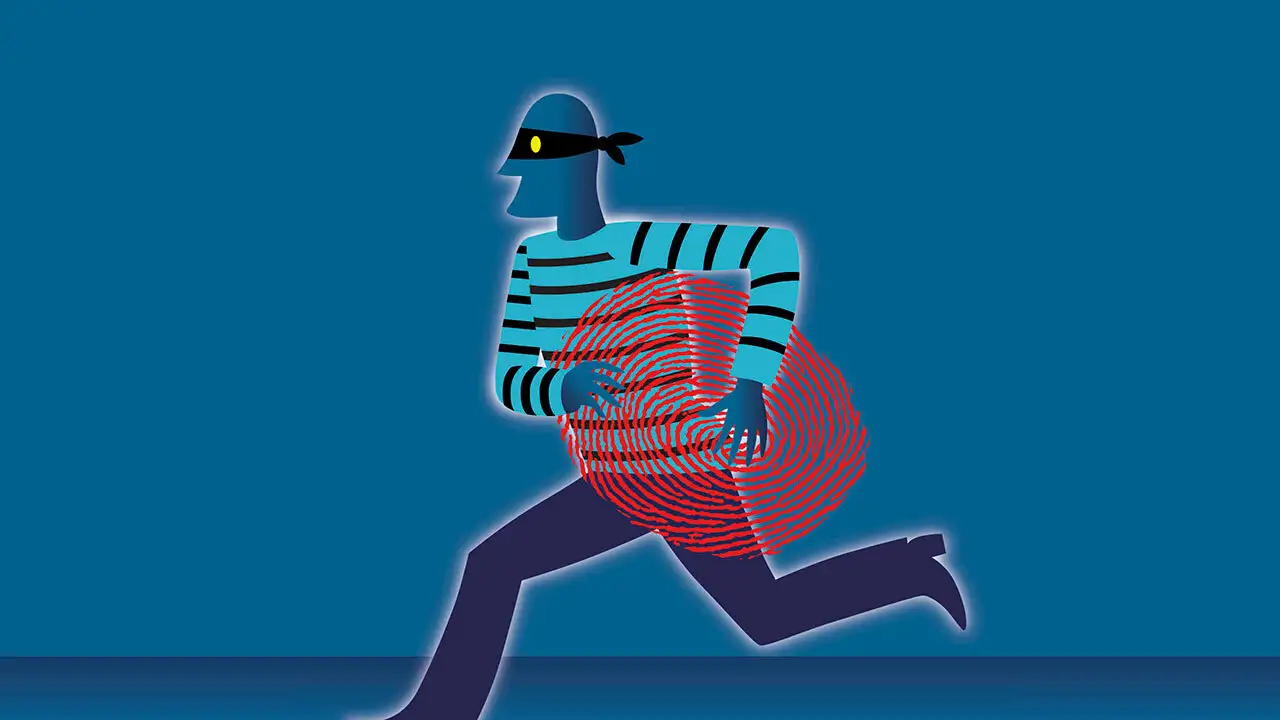
Money Tips & Education
Identity Theft - What is it and what you should know about it
Apr 08, 2025
Written by
Key Takeaways:
What is Fraud?
How it happens.
How to identify if you’ve been a victim of fraud.
Ways to protect yourselves and loved ones.
Steps to take when you’re a victim of fraud
Prevention
Achieve is committed to the prevention and detection of fraudulent activity and protecting consumers from potential harm due to illicit actors. This article provides resources to help consumers understand the fraud risks which exist in the financial services industry and steps you can take to protect yourself along with actions to take should you become a victim of fraud.
Why prevention matters: American adults lost a total of $43 billion to identity theft alone in 2023, according to a report cosponsored by AARP. See link to full article.
Common actions you can take to prevent being a victim of of fraud:
Freeze your credit reports with each of the three credit bureaus.
Create different complex passwords for your sensitive accounts (e.g. Deposit accounts, investment accounts)
Set up Multi-factor authentication where available and especially for your sensitive accounts (e.g. Deposit accounts, investment accounts).
Create a safeword only your family would know about that is not identifiable in your social media accounts.
What is fraud?
Fraud can come in many forms. It occurs when someone intentionally misrepresents the truth, or withholds or conceals important information, resulting in harm, such as monetary loss.
Identity theft is when someone obtains your personal information and uses it to commit fraud.
They could:
Open credit cards or loans in your name
Steal money from your bank account
Steal your tax refunds
Create potential legal issues from debt you did not accrue
How fraud happens
There are many ways that a fraudster can obtain your information. Below are a few of the most common ways it can happen:
Phishing - Fraudsters will send credible-looking emails or text messages which trick you into providing your personal information or infecting your computer or phone with malware.
Hacking - This is when a thief gains access to your personal information by using a variety of tools and techniques to exploit weaknesses in your computer devices or networks.
Spoofing - Are bogus sites and phone numbers that appear legitimate and ask you for your personal information.
Stealing - Thieves can take your mail, personal documents, and devices to obtain your information.
Advance Fee Scams - A type of fraud scheme where a fraudster promises a large sum of money in exchange for an upfront payment. Once the transaction is complete, the fraudster disappears or continues to look for other ways to exploit the victim.
Romance Scams - Scheme where a fraudster offers love or friendship to a lonely person, particularly a financially well-off widow or widower, then attempts to steal the victim's money.
What should I look for?
Monitoring your personal information on a regular basis will help you identify if you’ve been a victim of fraud. Below are some of the red flags to look for:
Unexplained transactions
New credit cards or accounts opened that you did not apply for
Unexpected denial of credit applications
Unfamiliar inquiries on your credit report or a surprise drop in your credit score
Collection calls on accounts that you did not open
Unusual or too good to be true offer from an unknown individual
An unknown individual urgently needs money to help one of your family member
An individual pretending to be from your bank who asks for your username and password
Ways to protect yourself from fraud.
There are a number of ways to protect yourself against fraud by doing the following:
Never provide your personal information to someone who calls, texts, or emails you.
Never click any links or attachments in suspicious emails or text messages.
Have unique complex passwords for all your accounts and don't use the same ones across multiple sites.
Regularly check your credit report and monitor for unanticipated changes.
Utilize third party monitoring sites to alert you when changes to your credit report are made.
Reach out to the three credit reporting agencies to protect your credit.
Check your bank account daily to identify any unusual or unexplained transactions.
Freeze your credit reports with all three credit bureaus
Enable multi-factor authentication
Create a safe word with your family members that only those close to you would know.
What to do if you are a victim of fraud
In the event that you or your loved one is a victim of Identity theft, there are a number of steps to take to ensure your information is secure and to get yourself financially back on track.
Notify the relevant companies or bank
Get in touch with the institutions immediately to alert them of the issue
Dispute the activity you believe to be fraudulent
Contact all three credit bureaus
Obtain your credit report from all three credit bureaus. If fraud is present, notify the agencies to investigate and sort out the fraudulent activity.
Consider adding a credit freeze or fraud alert on your credit.
Notify your local law enforcement
Supply all relevant information such as dates, times, and account numbers.
File a police report
Save a copy of the report as some institutions may require the document to remove fraudulent charges.
Report the event to the Federal Trade Commission (FTC).
Go to their website, identitytheft.gov to file a report
When you file a report, the FTC will use the information provided to build a case against the fraudsters.
Updating your security
Change the usernames and passwords on your accounts
Use multifactor authentication on sites that offer it.
Resources
Equifax:
Phone 800-525-6285
Email equifax.com
Experian:
Phone 888-397-3742
Email experian.com
TransUnion:
Phone 888-909-8872
Email transunion.com
Annual Credit report: http://annualcreditreport.com/
Consumer Financial Protection Bureau (CFPB): https://www.consumerfinance.gov/consumer-tools/fraud/
Federal Trade Commission (FTC): https://reportfraud.ftc.gov/
Elder Abuse Fraud Hotline: https://ovc.ojp.gov/program/stop-elder-fraud/providing-help-restoring-hope
Phone: 833-Fraud-11 or 833-372-8311
Author Information
Written by
Cool, calm and collected, Future You knows a thing or two about working with Achieve to deal with debt. Also, time travel, and the secrets the future holds. But, the important thing is the debt thing. So listen to Future You.
Related Articles
Some credit checks affect your score, but others don’t, even from the same lender. We’ll explain when and why credit checks can affect your credit.
Jane Meggitt
Author
Myth-busting: you don’t need to carry a credit card balance to have good credit! Learn how credit utilization affects credit scores.
Rebecca Lake
Author
Ready to take control of your money? Learn what a budget can do for you and how to make one.
Rebecca Lake
Author
Some credit checks affect your score, but others don’t, even from the same lender. We’ll explain when and why credit checks can affect your credit.
Jane Meggitt
Author
Myth-busting: you don’t need to carry a credit card balance to have good credit! Learn how credit utilization affects credit scores.
Rebecca Lake
Author
Ready to take control of your money? Learn what a budget can do for you and how to make one.
Rebecca Lake
Author


